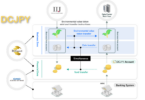The U.S. Cotton Trust Protocol has partnered with TextileGenesis to track and trace cotton fiber on its blockchain platform. The aim is to encourage sustainable practices across the cotton supply chain and enhance its transparency with consumers and retailers. Launched in 2020, the Trust Protocol has over 300 brands, retailers, mills and manufacturers in its member network, including Gap and Next.
Transparency and traceability practices are growing in demand across almost all industries. Consumers want to know where their product is coming from and the ethical implications of its production. A transparent and traceable supply chain forces suppliers to be more conscious of their production choices, and using blockchain enhances the trust in manufacturer claims.
The cotton industry is no different. The raw material provides an income for over 250 million people worldwide and employs almost 7% of labor in developing countries. However, it’s production also involves fairly unsustainable practices as it requires large amounts of water, contributes to soil erosion and degradation, often pollutes nearby water bodies, and working conditions for farmers are far from ideal.
The Cotton Trust Protocol is a program addressing these challenges by collecting data related to sustainability in cotton production and setting verifiable and measurable goals. The concept of the program is to give brands that choose Trust Protocol assurance that cotton was sustainably grown and with low environmental and social impact. It works on providing transparency across the supply chain through its Protocol Credit Management System (PCMS), which will be enabled by TextileGenesis platform to record and verify every movement of U.S. cotton fiber. Incorporating the TextileGenesis blockchain solution will capture article-level transactions between the participants in the supply chain.
Once a cotton product is finished, the Trust Protocol brand and its associate retail members will be able to claim Protocol Credits. These are digital tokens representing the environmental metrics and sustainable practices adopted in the creation of the item.
Pilot trials will begin in June of this year and the full launch of the program is expected to take place at the beginning of 2022.
The Trust Protocol was founded by the U.S. National Cotton Council and the COTTON USA Sustainability Task Force with Memphis-based The Seam as the technology partner. Besides working to provide full transparency across the cotton supply chain, it is also aiming to make cohesive standards for the industry.
Meanwhile, TextileGenesis is one of the first supply chain traceability platforms targeted directly at the fashion and textile industry. The company was recently involved in a World Economic Forum blockchain project for sustainability. It uses Fibercoin traceability technology to trace products from fiber-to-retail, and it says it collaborates with leading brands that collectively account for over $100 billion in apparel sales. Fibercoin is a digital twin, not a cryptocurrency.
IBM’s blockchain traceability solution is also becoming more active in textile traceability. The group is working with German workwear company KAYA&KATO for clothing traceability, and Carrefour, which is a member of IBM Food Trust, has expanded the use of blockchain technology to its textile products.
The Denim Deal, an initiative that promotes a circular economy in the denim industry, has partnered with cleantech company The Movement for its Aware blockchain traceability solution.






